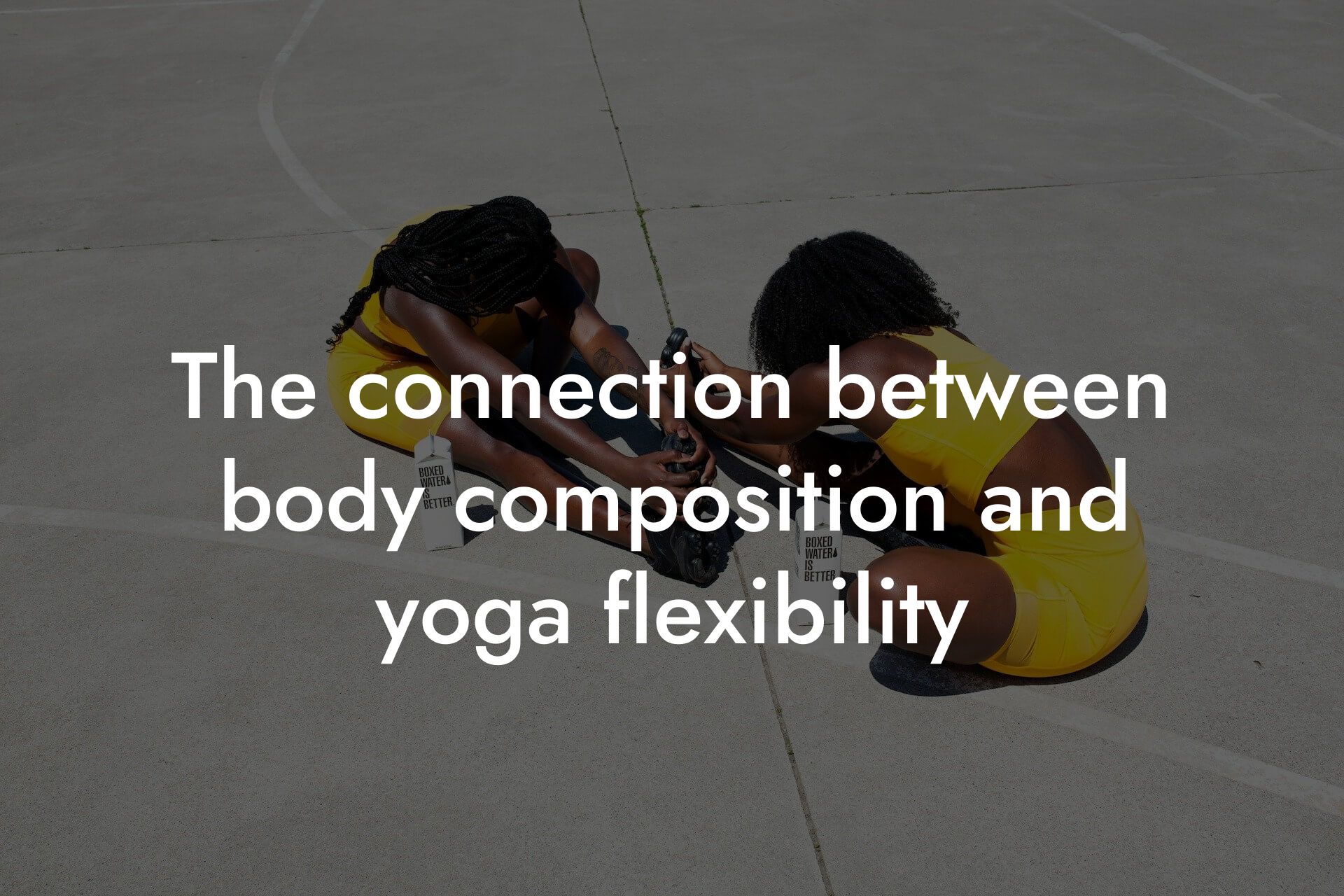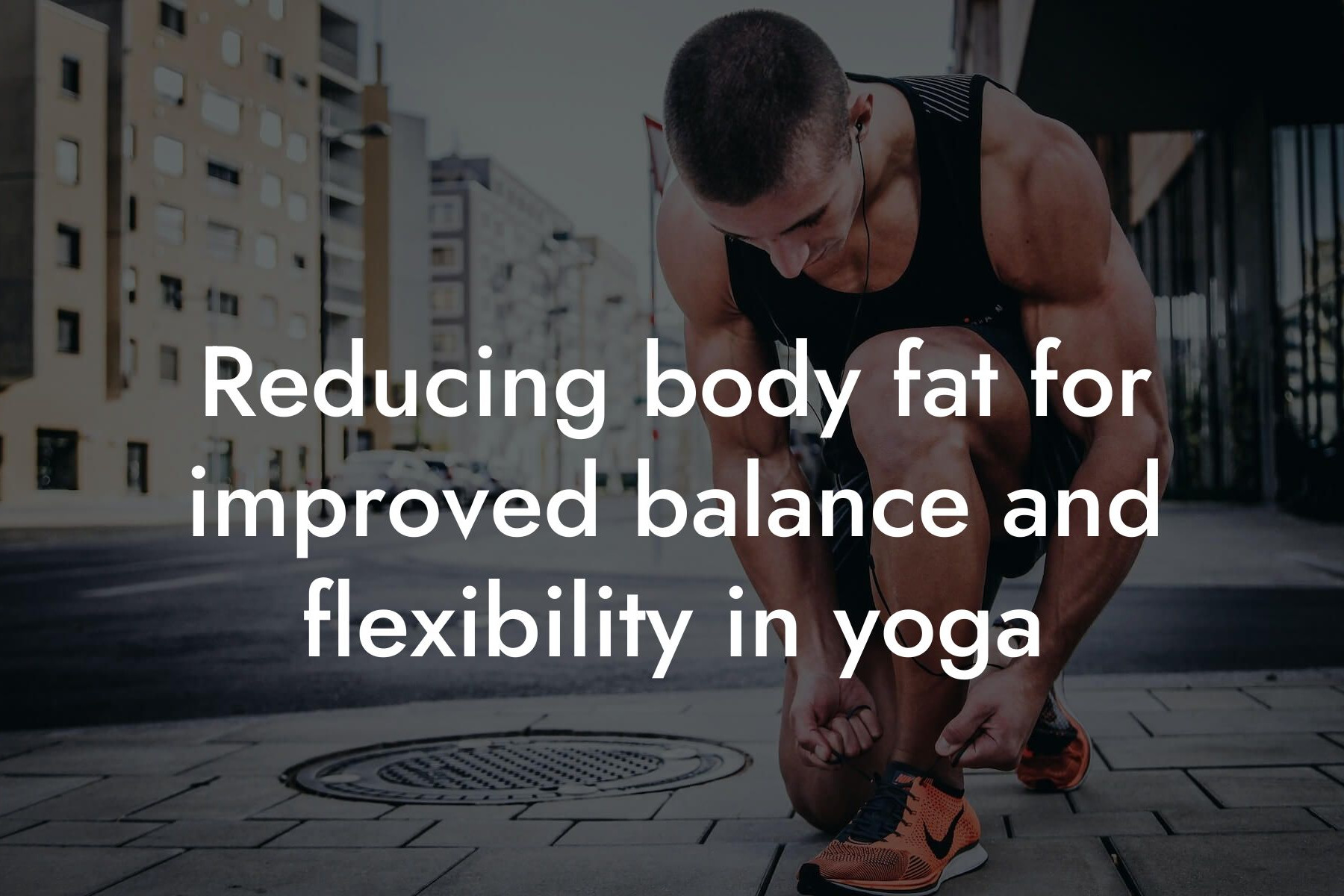Understanding DEXA Scans
As a yoga enthusiast, you're likely committed to taking care of your body and optimizing your physical performance. One valuable tool that can help you achieve this goal is a DEXA (Dual-Energy X-ray Absorptiometry) scan. A DEXA scan is a non-invasive, pain-free test that measures bone density, body composition, and fat distribution. It provides a comprehensive picture of your body's composition, helping you identify areas for improvement and track the effectiveness of your yoga practice.
Table of Contents
The Benefits of DEXA Scans for Yoga Enthusiasts
DEXA scans offer several benefits for yoga enthusiasts, including:
- Accurate body fat percentage measurement: DEXA scans provide a precise measurement of body fat percentage, which is essential for understanding your overall health and fitness. This information can help you adjust your diet and yoga practice to achieve your desired body composition.
- Identification of muscle imbalances: DEXA scans can detect muscle imbalances and asymmetries, which can help you identify areas that need extra attention in your yoga practice. By addressing these imbalances, you can improve your overall strength, flexibility, and range of motion.
- Bone density assessment: DEXA scans measure bone density, which is critical for yoga enthusiasts, especially those who practice weight-bearing styles like Vinyasa or Ashtanga. By monitoring bone density, you can identify potential issues before they become serious and take proactive steps to maintain strong, healthy bones.
- Personalized nutrition and training plans: With the data provided by a DEXA scan, you can create a personalized nutrition and training plan tailored to your specific needs and goals. This can help you optimize your yoga practice, improve your overall health, and achieve your desired physique.
How DEXA Scans Can Improve Your Yoga Practice
A DEXA scan can help you improve your yoga practice in several ways:
- Enhanced body awareness: By understanding your body composition and muscle imbalances, you can develop greater body awareness, which is essential for proper alignment, balance, and movement in yoga.
- Targeted exercises: With the data from a DEXA scan, you can identify specific areas that need improvement and incorporate targeted exercises into your yoga practice to address these weaknesses.
- Injury prevention: DEXA scans can help you identify potential injury risks, allowing you to take proactive steps to prevent injuries and maintain a safe, healthy yoga practice.
- Optimized progress tracking: By regularly tracking your body composition and bone density, you can monitor your progress and make adjustments to your yoga practice as needed.
What to Expect During a DEXA Scan
If you're considering a DEXA scan, you may wonder what to expect during the process. Here's what you need to know:
- The scan itself takes about 10-15 minutes and is completely painless.
- You'll lie down on a flat, padded table, and the DEXA machine will scan your body using low-level X-rays.
- The scan is non-invasive, and you won't need to undress or prepare in any special way.
- After the scan, a trained technician will analyze the data and provide you with a detailed report outlining your body composition, bone density, and other key metrics.
How Often Should You Get a DEXA Scan?
The frequency of DEXA scans depends on your individual goals and needs. Here are some general guidelines:
- If you're a beginner, consider getting a DEXA scan every 6-12 months to track your progress and make adjustments to your yoga practice as needed.
- If you're an experienced yogi, you may want to get a DEXA scan every 12-18 months to monitor your progress and identify areas for improvement.
- If you have specific health concerns or injuries, your healthcare provider may recommend more frequent DEXA scans to monitor your progress and adjust your treatment plan accordingly.
Choosing a Reputable DEXA Scan Provider
When selecting a DEXA scan provider, it's essential to choose a reputable and experienced facility. Here are some factors to consider:
- Look for a facility with experienced technicians and a proven track record of providing accurate, reliable results.
- Check if the facility uses a high-quality DEXA machine that provides detailed, precise data.
- Consider the cost and value of the scan, as well as any additional services or support provided by the facility.
In conclusion, DEXA scans offer a valuable tool for yoga enthusiasts, providing a comprehensive picture of body composition, bone density, and fat distribution. By incorporating DEXA scans into your health and wellness routine, you can optimize your yoga practice, improve your overall health, and achieve your desired physique. Remember to choose a reputable provider, understand the benefits and limitations of DEXA scans, and use the data to make informed decisions about your health and wellness.
Get Started with Tano Performance Group
At Tano Performance Group, we're dedicated to helping high-earning professionals like you achieve their physical goals and optimize their performance. Our state-of-the-art DEXA machine provides accurate, reliable data, and our experienced technicians will guide you every step of the way. Contact us today to schedule your DEXA scan and take the first step towards achieving your desired physique and optimal health.
Frequently Asked Questions
What is a DEXA scan, and how does it benefit yoga enthusiasts?
A DEXA (Dual-Energy X-ray Absorptiometry) scan is a non-invasive medical test that measures bone density, body composition, and fat mass. For yoga enthusiasts, a DEXA scan can provide valuable insights into their overall health, helping them optimize their practice, improve their physique, and reduce the risk of injuries.
How does a DEXA scan differ from other body composition tests?
A DEXA scan is more accurate and comprehensive than other body composition tests, such as bioelectrical impedance analysis (BIA) or skinfold measurements. DEXA scans use X-ray technology to measure bone density, lean mass, and fat mass, providing a detailed breakdown of body composition.
What information can I expect to receive from a DEXA scan?
A DEXA scan report typically includes measurements of bone density, body fat percentage, lean mass, and fat mass distribution. You'll receive a detailed analysis of your body composition, including visceral fat area, android fat percentage, and gynoid fat percentage.
How long does a DEXA scan take, and is it painful?
A DEXA scan typically takes around 10-15 minutes to complete and is completely painless. You'll lie down on a table, and the scanner will move slowly over your body, taking precise measurements.
Are DEXA scans safe, and what are the risks involved?
DEXA scans are extremely safe and non-invasive. The radiation exposure is very low, equivalent to a few days of natural background radiation. There are no known risks or side effects associated with DEXA scans.
How often should I get a DEXA scan as a yoga enthusiast?
We recommend getting a DEXA scan every 6-12 months to track changes in your body composition and bone density. This frequency allows you to monitor the effectiveness of your yoga practice and make data-driven adjustments to your routine.
Can a DEXA scan help me improve my yoga practice?
Absolutely! A DEXA scan can help you identify areas of improvement, such as building strength in specific muscle groups or increasing flexibility in certain joints. This information enables you to create a more targeted and effective yoga practice.
How does a DEXA scan help with injury prevention in yoga?
By identifying areas of muscle imbalance, bone density deficiencies, or excessive fat mass, a DEXA scan can help you prevent injuries in yoga. You can adjust your practice to strengthen vulnerable areas, reducing the risk of injuries and improving overall performance.
Can a DEXA scan help me achieve my fitness goals?
Yes! A DEXA scan provides a detailed understanding of your body composition, allowing you to set realistic and achievable fitness goals. You can track progress, make adjustments to your diet and exercise routine, and celebrate successes along the way.
How does a DEXA scan measure bone density, and why is it important for yoga enthusiasts?
A DEXA scan measures bone density by comparing the absorption of X-rays by bones to the absorption by soft tissue. As a yoga enthusiast, maintaining healthy bone density is crucial to prevent osteoporosis, fractures, and other bone-related injuries.
What is the relationship between body fat percentage and yoga performance?
Excess body fat can negatively impact yoga performance by reducing flexibility, increasing joint stress, and decreasing overall endurance. A DEXA scan helps you monitor body fat percentage, enabling you to make adjustments to your diet and exercise routine to optimize performance.
Can a DEXA scan help me improve my posture and alignment in yoga?
By identifying areas of muscle imbalance and bone density deficiencies, a DEXA scan can help you improve your posture and alignment in yoga. This information enables you to focus on strengthening specific muscle groups and improving overall body awareness.
How does a DEXA scan account for muscle mass and strength in yoga enthusiasts?
A DEXA scan measures lean mass, which includes muscle mass, to provide a comprehensive understanding of your body composition. This information helps you track changes in muscle mass and strength, allowing you to adjust your yoga practice and nutrition plan accordingly.
Can a DEXA scan help me optimize my nutrition plan for yoga?
Absolutely! A DEXA scan provides valuable insights into your body composition, allowing you to tailor your nutrition plan to support your yoga goals. You can adjust your macronutrient intake, hydration, and supplementation to optimize performance and recovery.
How does a DEXA scan help with stress fracture prevention in yoga?
By identifying areas of bone density deficiencies and muscle imbalance, a DEXA scan can help you prevent stress fractures in yoga. You can adjust your practice to strengthen vulnerable areas, reducing the risk of stress fractures and other bone-related injuries.
Can a DEXA scan help me improve my overall health and wellness?
A DEXA scan provides a comprehensive understanding of your body composition, allowing you to make informed decisions about your health and wellness. You can track changes in body fat percentage, bone density, and lean mass, empowering you to take control of your overall health.
How does a DEXA scan differ from a body mass index (BMI) measurement?
A DEXA scan is a much more accurate and comprehensive measurement of body composition than BMI. While BMI only measures weight and height, a DEXA scan provides a detailed breakdown of body fat percentage, lean mass, and bone density.
Can a DEXA scan help me track changes in my body composition over time?
Absolutely! A DEXA scan provides a baseline measurement of your body composition, allowing you to track changes over time. You can monitor progress, make adjustments to your diet and exercise routine, and celebrate successes along the way.
How does a DEXA scan help with athletic performance and recovery in yoga?
A DEXA scan provides valuable insights into your body composition, allowing you to optimize athletic performance and recovery in yoga. You can adjust your practice, nutrition plan, and recovery strategies to improve overall performance and reduce the risk of injuries.
Can a DEXA scan help me improve my mental well-being through yoga?
Absolutely! A DEXA scan can help you develop a more positive body image, improve self-confidence, and enhance overall mental well-being through yoga. By tracking progress and achieving fitness goals, you can experience a greater sense of accomplishment and self-worth.
How does a DEXA scan help with hormone regulation and balance in yoga enthusiasts?
A DEXA scan can help identify areas of hormone imbalance, such as low testosterone or estrogen, which can impact yoga performance and overall health. You can work with a healthcare professional to develop a plan to balance hormone levels and optimize yoga performance.
Can a DEXA scan help me prevent chronic diseases, such as osteoporosis, through yoga?
Absolutely! A DEXA scan can help you identify areas of bone density deficiencies, enabling you to take proactive steps to prevent chronic diseases like osteoporosis. By incorporating yoga and other exercises into your routine, you can improve bone density and reduce the risk of osteoporosis.
How does a DEXA scan help with menopause and perimenopause symptoms in yoga enthusiasts?
A DEXA scan can help identify areas of hormone imbalance, bone density deficiencies, and body composition changes associated with menopause and perimenopause. You can work with a healthcare professional to develop a plan to manage symptoms and optimize yoga performance during this stage of life.
Here are some related articles you might love...
- The connection between body composition and yoga flexibility
- Strength training tips to complement your yoga practice
- Reducing body fat for improved balance and flexibility in yoga
- Nutrition strategies for sustained energy in yoga practice
- Bone density and its impact on yoga practice
- Maintaining muscle tone and flexibility with yoga
- Balancing strength, flexibility, and mindfulness in yoga
- Recovery techniques for yogis after intense sessions
- The role of yoga in injury prevention and recovery
Zak Faulkner
Zak Faulkner is a leading authority in the realm of physical health and body composition analysis, with over 15 years of experience helping professionals optimise their fitness and well-being. As one the experts behind Tano Performance Group, Zak has dedicated his career to providing in-depth, science-backed insights that empower clients to elevate their physical performance and overall health.
With extensive knowledge of DEXA technology, Zak specializes in delivering comprehensive body assessments that offer precise data on body fat, muscle mass, bone density, and overall physique. His expertise enables individuals to make informed decisions and achieve their fitness goals with accuracy and confidence. Zak’s approach is rooted in a deep understanding of human physiology, combined with a passion for helping clients unlock their full potential through personalised strategies.
Over the years, Zak has earned a reputation for his commitment to excellence, precision, and client-focused service. His guidance is trusted by top professionals who demand the best when it comes to their health. Whether advising on fitness programs, nutritional strategies, or long-term wellness plans, Zak Faulkner’s insights are a valuable resource for anyone serious about taking their health and fitness to the next level.
At Tano Performance Group, Zak continues to lead our Content Team revolutionising how professionals approach their physical health, offering unparalleled expertise that drives real results.




